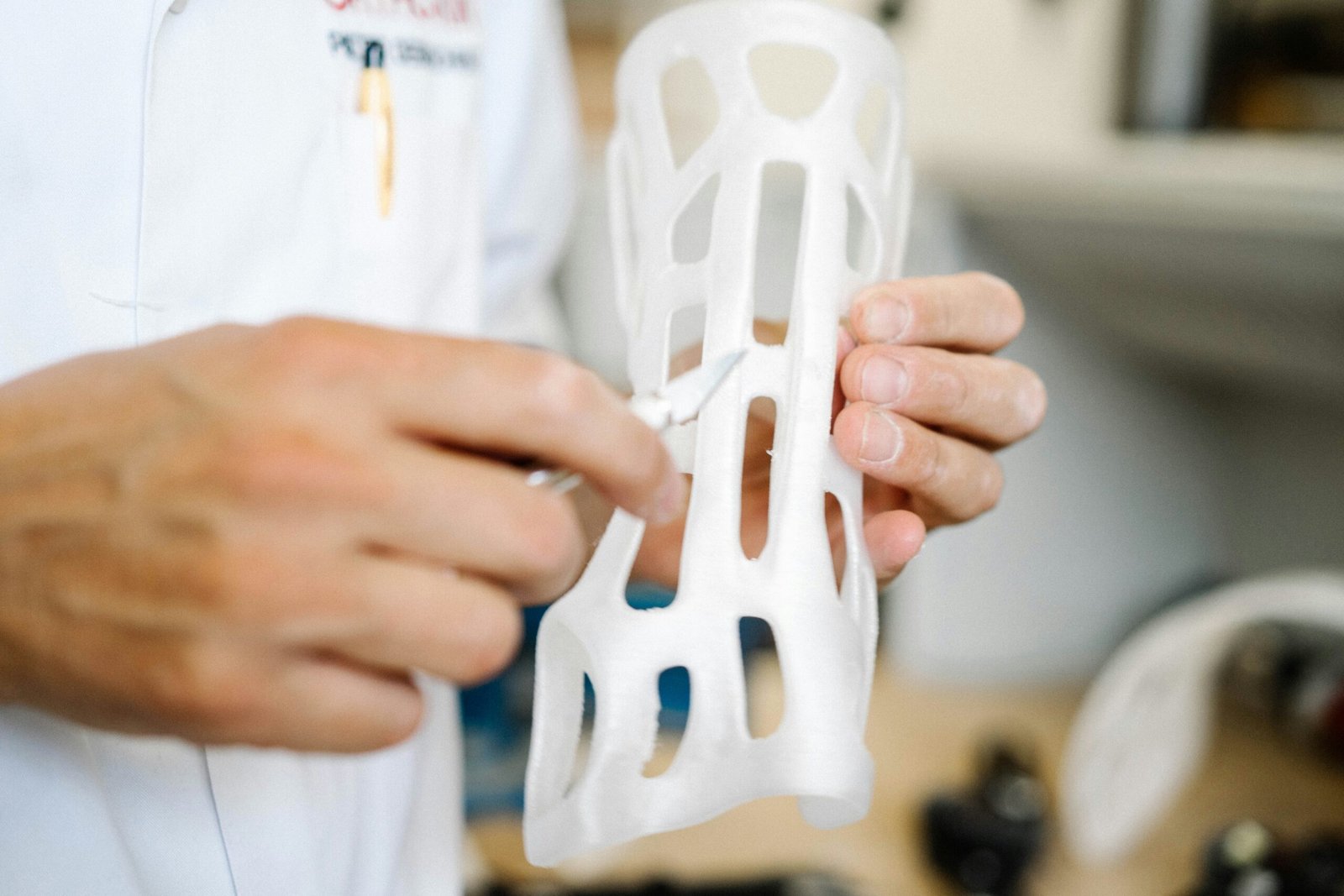Introduction to AI-Powered Medical Devices
AI-powered medical devices represent a transformative advancement in the healthcare sector, merging cutting-edge technology with clinical medicine to enhance patient care and streamline medical processes. These devices leverage artificial intelligence (AI) algorithms and machine learning capabilities to analyze vast amounts of data, providing healthcare professionals with critical insights and support in decision-making. The integration of AI into medical devices signifies a paradigm shift, shifting from traditional methods to more advanced and efficient methodologies that promise improved accuracy and patient outcomes.
The significance of AI-powered medical devices is multifaceted. First, these devices offer enhanced diagnostic accuracy by processing imaging data and identifying patterns that may be overlooked by human experts. This capability is particularly beneficial in fields such as radiology and pathology, where AI algorithms can assist in identifying anomalies, thus facilitating early intervention. Secondly, AI-powered tools increase operational efficiency within healthcare settings. For example, they can optimize workflow by predicting patient needs and automating routine tasks, allowing healthcare providers to dedicate more time to patient interaction and care provision.
Advancements in technology have been pivotal in the development of AI-powered medical devices. Innovations in data analytics, sensor technologies, and computational power have enabled these devices to function effectively, offering annotation and analysis capabilities that were previously unattainable. Moreover, widespread access to electronic health records (EHRs) and real-time patient data further empowers these devices, ensuring that medical professionals have the most relevant information at their fingertips.
With ongoing advancements, the role of AI in healthcare is poised to expand significantly by 2025. As more devices become AI-enabled, the potential benefits for accuracy, efficiency, and overall patient care will continue to evolve, making AI-powered medical devices an integral part of the future healthcare landscape.
Key Innovations in AI-Powered Medical Technologies
The landscape of healthcare is poised for transformative changes by 2025, driven primarily by innovations in AI-powered medical technologies. One of the most significant advancements anticipated is the development of smart diagnostic tools. These tools leverage machine learning algorithms to analyze extensive patient data, delivering accurate diagnoses with unprecedented speed. By integrating real-time analytics, these systems can help healthcare professionals identify potential health issues early, allowing timely interventions that can enhance patient outcomes.
Another prominent innovation expected in the coming years is the emergence of robotic surgical systems. These sophisticated systems are designed to enhance surgical precision and minimize invasive procedures. With the capability to perform complex surgeries with unmatched accuracy, robotic systems are set to revolutionize operating room dynamics. Surgeons equipped with these tools can operate with higher dexterity and reduced fatigue, ultimately leading to shorter recovery times and improved patient experiences.
Moreover, wearable health monitoring devices are evolving rapidly, thanks to advancements in AI and sensor technologies. These wearables are capable of continuously tracking vital signs and other health metrics, providing healthcare providers with real-time data for better patient management. The incorporation of machine learning enables these devices to identify trends over time, facilitating personalized care through timely alerts and recommendations tailored to individual health profiles.
Crucial to these innovations is the role of big data and cloud computing. By harnessing vast amounts of health-related information, these technologies enable more informed decision-making and predictive analytics in patient care. The convergence of AI with cloud capabilities ensures the seamless integration of data across various platforms, enhancing collaborative efforts among healthcare professionals and improving overall patient care. As these technologies continue to evolve, healthcare in 2025 will undoubtedly be more efficient, effective, and personalized.
Challenges and Ethical Considerations
The integration of AI-powered medical devices into healthcare by 2025 presents numerous challenges and ethical considerations that stakeholders must address to harness their potential effectively. One significant concern is data privacy. As these devices collect vast amounts of sensitive patient information, ensuring its protection becomes paramount. Healthcare providers and manufacturers must implement stringent data security measures to safeguard personal health information from unauthorized access or breaches, which could compromise patient trust and safety.
Another critical issue is the potential for biases in AI algorithms. Machine learning models are trained on historical data, which may inadvertently include prejudices present in the healthcare system. This can lead to disparities in diagnosis and treatment recommendations, disproportionately affecting certain populations. It is essential for developers to apply rigorous testing and validation of their algorithms to identify and mitigate any biases, ensuring that AI-powered devices provide equitable healthcare solutions for all patients.
The absence of adequate regulatory frameworks poses additional challenges as well. The rapid pace of AI technology advancement outstrips current regulations, creating a gray area regarding accountability and oversight. Government agencies and regulatory bodies must collaborate with industry stakeholders to establish clear guidelines that prioritize patient safety while fostering innovation. These frameworks should address the ethical implications of AI in healthcare, including consent, transparency, and adverse event reporting.
Manufacturers and healthcare providers can navigate these complexities by embracing a culture of transparency and accountability. Engaging with patients, practitioners, and ethicists during the device development process can help identify potential issues early on, promoting trust and collaboration among all parties involved. By proactively addressing these challenges, the healthcare sector can successfully integrate AI-powered medical devices while prioritizing ethical considerations and maintaining patient safety.
The Future Outlook: What to Expect in 2025 and Beyond
As we look ahead to 2025, the anticipated advancements in AI-powered medical devices promise to reshape the healthcare landscape significantly. These innovations are expected to enhance patient care, streamline processes, and introduce personalized treatment options, fundamentally transforming the patient experience. One of the key trends anticipated is the widespread integration of AI into existing healthcare systems, allowing for more sophisticated data analysis and decision-making processes. This integration will enable healthcare professionals to leverage real-time insights derived from patient data, leading to more accurate diagnoses and tailored treatment plans.
The role of ongoing research and development cannot be overstated in this context. Continuous investment in AI technologies will be critical for the evolution of medical devices. As new algorithms and machine learning capabilities emerge, patient monitoring systems are set to become more intuitive, offering predictive analytics that can forewarn clinicians about potential health declines. This period may also see increased collaboration between technology companies and healthcare providers, fostering an environment ripe for innovation and rapid deployment of AI tools that enhance operational efficiency and patient outcomes.
Accessibility to healthcare is anticipated to experience a major boost due to AI-driven devices. Innovations such as telemedicine platforms equipped with AI diagnostic tools can help bridge the gap in healthcare access, particularly for individuals in underserved areas. These technological solutions aim to make quality healthcare more available, ensuring that even the most remote populations can receive timely medical assistance. Furthermore, AI’s ability to process vast amounts of data could lead to significant improvements in health equity, addressing disparities in care among diverse patient populations. Through these transformative advancements, the overall quality of patient lives is expected to improve, positioning AI-powered medical devices as an essential element in the future of healthcare.









